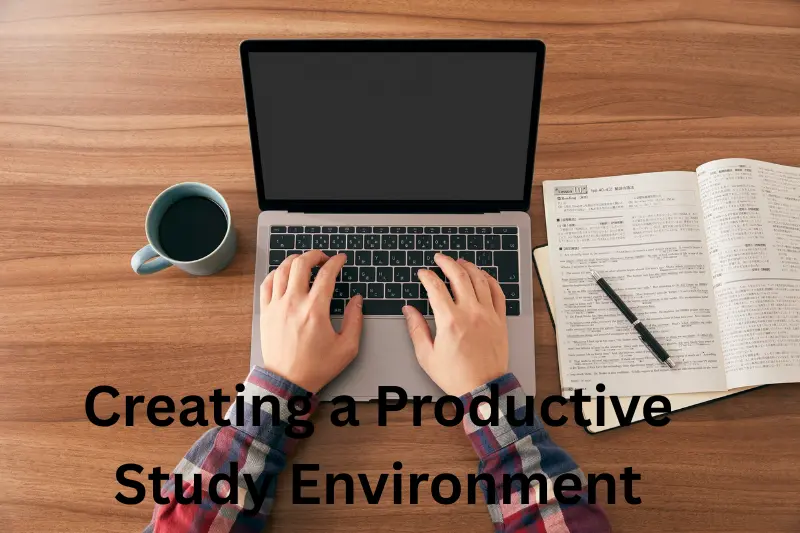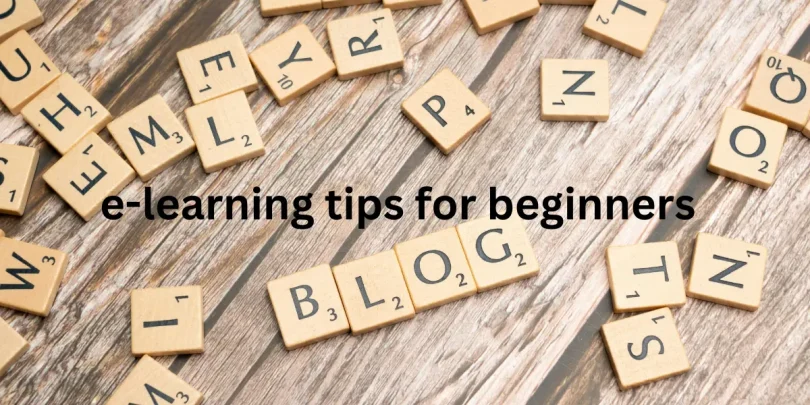Let’s be real for a second—starting your journey into online learning can feel both exciting and overwhelming at the same time. You open your laptop, ready to dive into that shiny new course, but then… distractions hit. Maybe your phone keeps buzzing, or your mind wanders because studying from home doesn’t feel like studying at all. Sound familiar? You’re not alone. Many beginners struggle with focus, motivation, and figuring out how to learn effectively online. That’s exactly why we’re here—to make your start smoother, simpler, and more successful. So grab a cup of coffee, take a deep breath, and let’s have an honest talk about some practical e-learning tips for beginners that can help you learn smarter, not harder.
Understanding the Basics of E-learning

E-learning is not just a trend; it’s a revolutionary way of learning that has changed how we gain knowledge. Unlike traditional classrooms where you’re required to attend physical sessions at fixed times, e-learning offers flexibility that fits your lifestyle. You can learn from anywhere—your room, a café, or even while traveling. All you need is a device and an internet connection. But while this freedom sounds amazing, it also comes with challenges. The same flexibility that makes e-learning attractive can make it easy to lose discipline. When no teacher is around to remind you of deadlines, you have to rely on your own self-motivation. That’s why understanding how to navigate this new learning environment is so important.
Traditional learning gives you structure—there are fixed classes, real-time discussions, and a social environment that keeps you engaged. E-learning, on the other hand, demands independence. You must build your own structure. You become your own teacher, planner, and motivator. It’s empowering, but at the beginning, it can feel like being thrown into the deep end of a pool without knowing how to swim. The good news is that with a few simple adjustments, you can not only stay afloat but actually thrive in this digital world of education.
Setting the Right Mindset
The first step in succeeding with e-learning is mindset. You have to treat it like a real learning experience, not a casual hobby. When you start learning online, it’s easy to get frustrated if things don’t click right away. Maybe the website feels confusing, the lessons seem fast, or you feel lost among all the digital tools. But remember—no one gets it perfect on day one. Every expert you admire once felt the same way. Give yourself time to adjust. Be patient with yourself. Celebrate even the smallest progress, like completing a single module or understanding a concept that once seemed impossible.
E-learning can be mentally challenging because you’re managing your own pace. You might face moments when you doubt yourself or feel like giving up. But those uncomfortable moments are signs of growth. Instead of resisting them, embrace them as part of your learning journey. Each struggle you overcome builds resilience and confidence. Stay curious, stay motivated, and remind yourself why you started. Whether it’s career growth, personal development, or simply curiosity—your reason will keep you grounded through every challenge.
You may also like to read these articles
Unlock Your Potential with the Best Skill Development Courses Online
Unlock Your Potential with Practical Skill Development Programs
Unlock Future Success with Skill Development for Students
Transform Your Career with Expert Professional Skill Building Tips
Unlock Your Confidence: how to improve communication skills Fast
Creating a Productive Study Environment

Your environment can make or break your ability to focus. When you study at home, distractions are everywhere. That’s why you need a designated learning spot. It doesn’t have to be a fancy setup—a small corner of your room can work perfectly. The key is consistency. When your brain associates that space with studying, it becomes easier to concentrate. Keep your study area tidy and organized. A clutter-free space leads to a clutter-free mind. Remove unnecessary items from your desk, close unused browser tabs, and keep only what you need—your notes, your laptop, and maybe a glass of water.
Noise is another enemy of focus. Some people prefer total silence, while others like soft background sounds. Try experimenting with gentle music or white noise. If your surroundings are noisy, use headphones or noise-canceling tools. Lighting is also crucial—natural light boosts focus, so study near a window if possible. The goal is to create an environment that feels calm, comfortable, and distraction-free, so when you sit down, your mind instantly knows it’s learning time.
Building a Consistent Routine
One of the biggest advantages of e-learning is flexibility—but without structure, flexibility can quickly turn into chaos. To avoid that, build a consistent routine. Decide what time of day you learn best. Morning learners may find it easier to study right after breakfast, while night owls might prefer evenings. Whatever your style, make it a habit. Your brain thrives on consistency. Over time, studying at the same hour becomes automatic, making it easier to stay disciplined.
Another great technique is using the “Pomodoro” method. Study for 25 minutes, then take a 5-minute break. After four sessions, take a longer break. This helps maintain focus while preventing burnout. Also, don’t overload yourself. It’s better to study one course properly than juggle multiple and retain nothing. Give your brain the time it needs to process information deeply. The goal is not to rush through lessons but to truly understand and apply what you learn.
Staying Motivated and Engaged
Motivation doesn’t last forever—it fluctuates. That’s why it’s important to have systems in place to keep yourself engaged. Set specific goals for what you want to achieve. Maybe it’s completing one lesson a day or mastering a new skill by the end of the month. Write your goals down and keep them visible near your study area. When your motivation dips, looking at those goals will remind you of your “why.”
Tracking your progress is another powerful motivator. Use checklists or digital trackers to mark what you’ve accomplished. Seeing your progress visually builds confidence and keeps your energy high. And don’t forget to reward yourself! Treat yourself to a snack, a short movie break, or some downtime after completing a tough session. Positive reinforcement helps build consistency, making learning feel enjoyable instead of like a chore.
Managing Time and Avoiding Procrastination
Time management is one of the toughest parts of e-learning. Without fixed class hours, it’s easy to procrastinate. To combat this, plan your week in advance. Write down deadlines, assignments, and topics you’ll cover. Keep your goals realistic—don’t cram everything into one day. Divide big tasks into smaller, manageable parts. Instead of saying, “I’ll finish the whole module today,” say, “I’ll watch two videos and review notes.” This simple shift reduces overwhelm and keeps you productive.
Identify what distracts you most. Is it your phone? Social media? Notifications? Use apps that block distractions during study hours. Also, don’t underestimate the power of planning. A digital calendar can be your best friend—set reminders, schedule review sessions, and track your time. Time is a resource, and managing it wisely will make your e-learning experience smoother and less stressful.
Mastering Self-Discipline
Discipline is what separates successful learners from those who quit halfway. Motivation will fade, but discipline will keep you moving. Even when you don’t feel like studying, commit to showing up for at least ten minutes. Often, once you start, the momentum carries you forward. Keep your phone away, turn off notifications, and dedicate a set period solely to learning. The more consistent you are, the easier it becomes to stay disciplined over time.
Also, remove temptations from your surroundings. If your study area is near your TV, move it elsewhere. If you constantly reach for your phone, keep it in another room. Make your learning environment distraction-proof. Finally, always keep your end goal in mind. Visualize what success looks like for you—whether it’s a better job, improved skills, or self-confidence. That vision will fuel your discipline and determination.
Making the Most of Online Resources
E-learning platforms are packed with valuable tools—use them! Participate in discussion forums, attempt quizzes, and engage with classmates. Interaction keeps you mentally active and improves retention. Don’t hesitate to ask questions or seek clarification; curiosity is a strength, not a weakness.
In addition, explore external resources like YouTube tutorials, blogs, and free e-books to deepen your understanding. However, be selective—too much information can cause confusion. Focus only on sources that support your main course content. Another great way to stay connected is by joining online communities. Interacting with fellow learners helps you share ideas, get support, and stay accountable. Remember, even though e-learning happens online, you’re never truly alone—you’re part of a global learning community.
Developing Better Study Techniques
To make learning more effective, use smart study strategies. Don’t just watch or read passively—take notes in your own words. Summarize ideas instead of copying them. Visual tools like charts, diagrams, and color-coded notes can help your brain absorb information better. Applying what you learn is just as important. If you’re taking a coding course, build small projects. If it’s communication skills, practice them daily. Active learning deepens understanding far more than passive reading ever can.
Also, review regularly. Instead of cramming everything before exams, revisit topics weekly. This repetition strengthens memory retention and builds long-term understanding. Set aside a “review day” each week to refresh what you’ve learned. The more you reinforce knowledge, the more confident you’ll feel.
Maintaining Focus and Energy
Your brain needs care to perform at its best. Staying focused during e-learning requires physical and mental balance. Take regular breaks to prevent fatigue. Short pauses allow your brain to recharge. Move around, stretch, or drink water during these breaks—it helps reset your concentration.
Exercise and good nutrition also play a big role. Staying physically active increases energy and focus. Even a 10-minute walk can clear your mind before studying. And don’t underestimate the power of sleep. When you rest properly, your brain processes information more effectively. Think of sleep as part of your study plan—it’s when your learning consolidates.
Overcoming Common Beginner Challenges
Let’s talk about some common struggles. Feeling overwhelmed is normal at the start. The key is to simplify. Focus on one step at a time instead of everything at once. When you feel stuck, prioritize tasks. Ask yourself: “What’s most important right now?” This mindset helps you stay in control.
Sometimes you’ll lose interest in lessons. When that happens, try connecting what you’re learning to real-life situations. For example, if you’re studying marketing, think about how it applies to your favorite brands. Making learning relevant renews excitement. And if you feel isolated, remember—you’re not alone. Reach out to instructors or peers through discussion boards. Human connection can make learning more meaningful and less lonely.
Building Long-Term Habits
To truly benefit from e-learning, make it part of your lifestyle. Instead of treating it like a temporary project, see it as a habit of continuous growth. Incorporate learning into your daily routine—listen to educational podcasts, read short articles, or watch a tutorial during lunch breaks. When learning becomes a natural part of your day, consistency no longer feels like a burden.
Reflecting on your journey also helps. Look back at how far you’ve come. Remember when you didn’t even know where to start? Now you’re managing courses, understanding topics, and progressing steadily. Celebrate that! Reflection reinforces confidence and reminds you that every effort counts. Keep challenging yourself too. Once you finish one course, move to another. Growth never stops, and neither should your curiosity.
Your Actionable Checklist
Before you go, here’s a quick recap to keep your learning on track. Choose a quiet, organized space where you can study without distractions. Follow a consistent routine that fits your lifestyle. Use short, focused study sessions with regular breaks. Set clear goals and track your progress weekly. Stay active in discussions and apply what you learn. Review your lessons often to reinforce memory. And most importantly, stay patient with yourself—progress may be slow, but it’s steady.
Conclusion
Starting your online learning journey may seem like a lot at first, but remember—no one becomes an expert overnight. You’re building something valuable, one lesson at a time. The key is to stay patient, consistent, and open-minded. Every small effort counts, even on days when progress feels slow. Believe in yourself and trust the process, because with dedication and persistence, you’ll soon realize how much you’ve grown. Keep learning, keep exploring, and keep moving forward—your success story has already begun. And that’s the real power of e-learning tips for beginners.
FAQs
What is e-learning and how does it work for beginners?
E-learning is studying through online platforms. Beginners can learn at their own pace using videos, courses, and virtual classes anytime, anywhere.
How can beginners stay motivated during e-learning?
Setting clear goals, following a schedule, and rewarding small wins help keep motivation strong while learning online.
What tools do beginners need for effective e-learning?
A stable internet connection, a laptop or smartphone, and note-taking apps or digital planners are great starting tools.
How do beginners overcome distractions while learning online?
Find a quiet study space, turn off phone notifications, and use focus timers to stay on track during lessons.
Why are time management skills important in e-learning?
Good time management helps beginners complete courses efficiently, avoid stress, and balance learning with daily routines.






